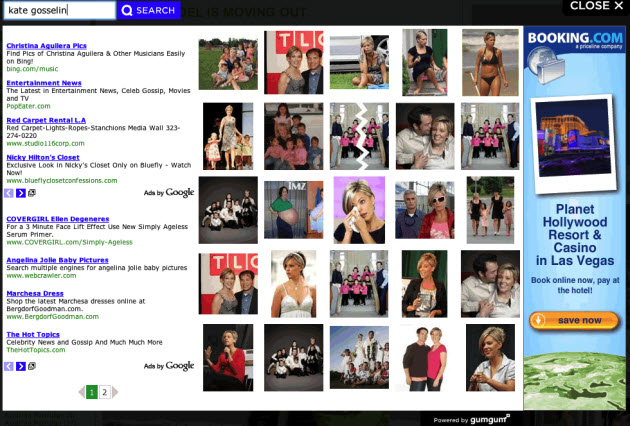
The new feature, which has been in private beta testing for several months, lets users share an image with just one click. It also lets users view related images via a Google Image “like search,” which leverages GumGum’s ability to understand the context around a photo. The toolbar also lets users zoom in on photos. Links generated from the Image Toolbar point back to the publisher. Revenue generated by the toolbar is shared with publishers, said Ophir Tanz, co-founder of GumGum in Santa Monica, Calif.
[aditude-amp id="flyingcarpet" targeting='{"env":"staging","page_type":"article","post_id":218889,"post_type":"story","post_chan":"none","tags":null,"ai":false,"category":"none","all_categories":"business,","session":"D"}']Tanz says that the company’s embed code for its images reaches 70 million monthly unique visitors across thousands of properties. The embed code identifies an image, assigns context to it, and overlays services on top of the images to maximize monetization and interaction. GumGum enables web publishers to make money from content on their sites. Since the ads become part of the photos, the publishers don’t have to set aside ad space on a web page to monetize the photos. The company was founded in early 2008 by Tanz and Ari Mir. It has 10 employees.
AI Weekly
The must-read newsletter for AI and Big Data industry written by Khari Johnson, Kyle Wiggers, and Seth Colaner.
Included with VentureBeat Insider and VentureBeat VIP memberships.
Rivals include PicApp, Image Space Media, and Pixazza. Tanz says his company is bigger than all of them. GumGum has raised $3.9 million in two rounds from First Round Capital, GRP Ventures, and Crosscut Ventures.
VentureBeat's mission is to be a digital town square for technical decision-makers to gain knowledge about transformative enterprise technology and transact. Learn More
